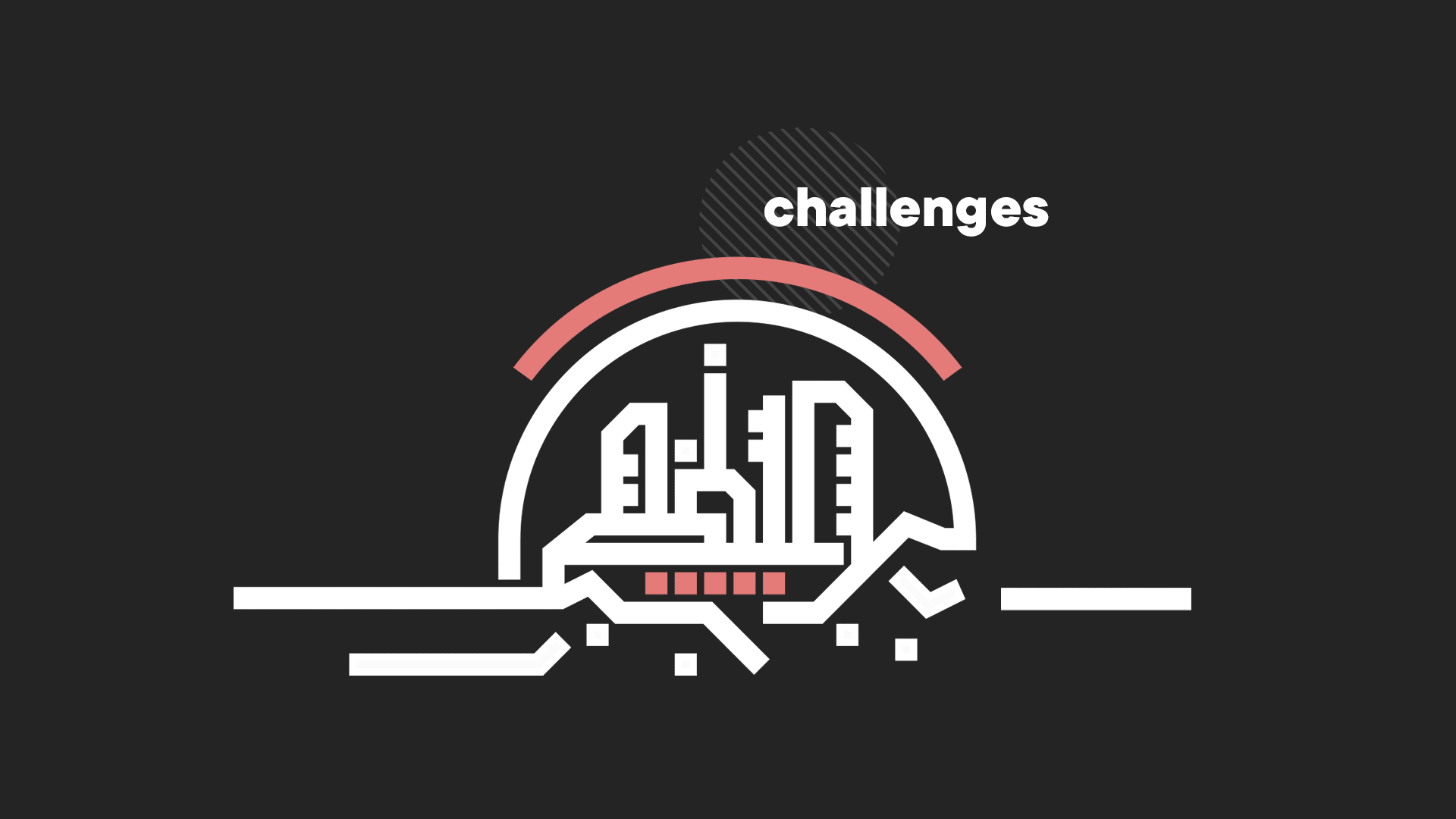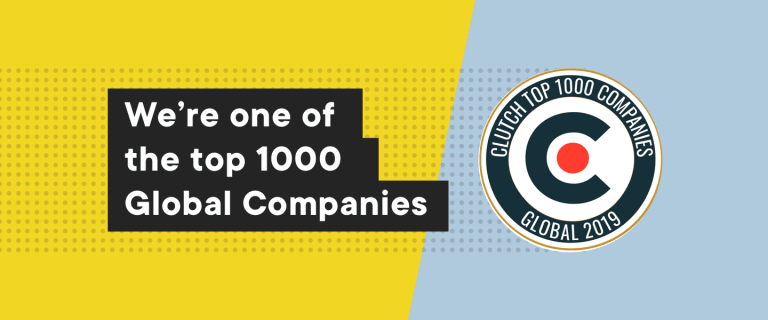Top tech challenges and opportunities for the Middle East - GITEX Technology Week 2019
As the most important annual tech trade show approaches in Dubai we present key trends shaping the Gulf region in the near future.

Table of contents
The annual GITEX Technology Week is the most important event the Middle East’s IT and software calendar. Around 4,500 companies from 140 countries will flock to Dubai for 6 days of trade exhibitions, conferencing, networking and business meetings. With government officials, key thought leaders and the creme-de-la-creme of the business crop attending, GITEX acts as the focal point for the most pressing technology issues and opportunities in the Gulf.

This year, Boldare will cover GITEX live, with video interviews from thought leaders published daily on our website and social media channels. Our team will be on the spot, talking to the decision-makers from Middle Eastern tech companies trying to distill the key opportunities and challenges in the region as well as pinpointing recipes for success. At Boldare, we have long experience of working with companies from the Gulf and thus we are constantly updating our business-critical knowledge of the region.
Ahead of the trip, we are summarising our most important research findings so far, as well as outputs from our conversations with Saudi and Dubai-based clients.
5G empowers digital businesses

5G is a mobile network that offers faster speed, lower latency, and greater capacity and reliability than its predecessors. This technological shift could create up to 22 million jobs worldwide and add up to $12.3 trillion in sales of products and services, according to a study by Qualcomm. 5G’s unique qualities opens many business opportunities for tech-savvy companies with use cases in remote patient care, autonomous smart transportation, and industry 4.0 to name just a few.
The 5G network is also an extraordinary opportunity for regions such as the Middle East, which are transforming and adjusting to the global digital economy. New 5G technology is already well-established in the Gulf region. The proliferation of mobile networks is huge - Statista claims that last year in Saudi Arabia, 20.2 million people used their mobile phones to access the internet, which accounts for almost two-thirds of the population. Moreover, the United Arab Emirates, Qatar, and Bahrain are among the top tech-using countries in the world, with more than 100 percent smartphone penetration, according to McKinsey findings.
With mobile phone usage being so high in the region, 5G can greatly speed up the process of digitization, especially in areas where fibre optic is still unavailable. It also provides new opportunities for the Gulf’s thriving startup scene. That is why major operators in the region have already launched 5G services in 2019, with networks such Etisalat, Du and STS offering commercial availability in the biggest cities in UAE and Saudi Arabia.
The startup scene in the ME is growing rapidly

In 2018, a whopping $893 million was invested in 386 startups in the MENA region reports The National. Saudi Telecom Ventures alone led investment rounds of $250 million and spent nearly $100 million on regional startups in 2018 (including Unifonic, Careem and Telfaz11).
Other serious VC companies in the Gulf, such as Wamda Capital, MEVP and Beco - together funding over 70 startups - have invested most of their funding and are now raising more capital. Open a website like Menabytes and be flooded by information on startup investments in the region - it is an exciting time for tech entrepreneurs and investors in the Middle East.
Among the types of startups present in the region, fintech is especially noteworthy. By 2022, fintech in MENA is expected to grow into a $2.5 billion industry, according to a report by Accenture and FinTechHive. Furthermore, it is predicted that fintech will account for up to 8% of all financial services in the region. And no wonder! Over the past few years, Saudi Arabia, UAE, Kuwait, Qatar and Bahrain have all launched multiple governmental initiatives to stimulate the growth of the Gulf’s fintech industry.
However, many of the startups in the region are hindered or slowed down by a limited talent pool and skills gap in the local labor market.
Skills gap is a pressing issue
The Middle East is investing heavily in digitization with the Saudi and UAE’s governments pushing towards 5G and investing in fibre optic, as well as initiatives such as:
- ”Saudi codes” (providing coding training for Saudi youth),
- “One Million Arab Coders” (training 1m young people in IT skills),
- Hajj hackathon (breaking the Guiness World Record for the greatest number of coders).
These strategic moves demonstrate a high interest in investment in talent and bridging the skills gap needed to fulfil their ambitions for the digital economy.
However, with a booming startup scene and tech multinationals popping up in the region, the appetite for experienced web developers and designers is soaring. While the local labor market can provide a limited number of digital specialists (around 1.7% of the ME workforce according to McKinsey - half of the European average), companies must look for alternatives, such as software development partnerships abroad. Such partnerships can be highly successful and help with both software development and organizational growth. Experienced web development companies can provide consulting services and knowledge transfer and state-of-the-art web and mobile solutions.
Digital Transformation - an opportunity which the Gulf cannot miss

Saudi Arabia’s Vision 2030 and National Transformation Program 2020, as well as the UAE Vision 2021, are governmental programs aiming to boost the region’s digital economy and society. Governmental efforts to shift gears from a natural resource economy to digital are to be admired but still the private sector has a lot of catching up to do. According to McKinsey, despite huge penetration of smartphones in the Middle East (especially in UAE and Saudi Arabia), many businesses still lag behind with their online presence. Data from 2016, shows that a whopping 85% of SMEs are yet to digitize their business in some form.
Among the many recommendations featured in the report, it is worth mentioning that to become truly competitive, local companies need to adopt modern methods and frameworks for working on software, such as “agile and lean operations, including scrum, design thinking, lean startup methods, DevOps, and a “build, test, fail, rework” attitude”.
Moreover, to speed up this adoption and build skills in-house, Gulf enterprises should seek partnerships with experienced web and mobile development vendors abroad. Working with an external company can help to speed up the development process and pass on the abovementioned knowledge while working on a software project .
On the other hand, digital transformation is also a massive opportunity. Services such as Souq.com (online marketplace unicorn) and Careem (ride-hailing startup) among many, have shown that the local equivalents of well-known business models can be a huge success. The region is overflowing with opportunities yet to be seized.
There’s much more!

These four key trends and findings are just a conversation starter. With many more issues on this year’s GITEX agenda, such as retail, AI, healthtech, and smart cities to name just a few, we will have our hands full with live coverage. Stay tuned and be up to date with Boldare Live from GITEX 2019 - follow us on Twitter @boldarecom and LinkedIn for fresh videos, photos and updates.
Share this article:







